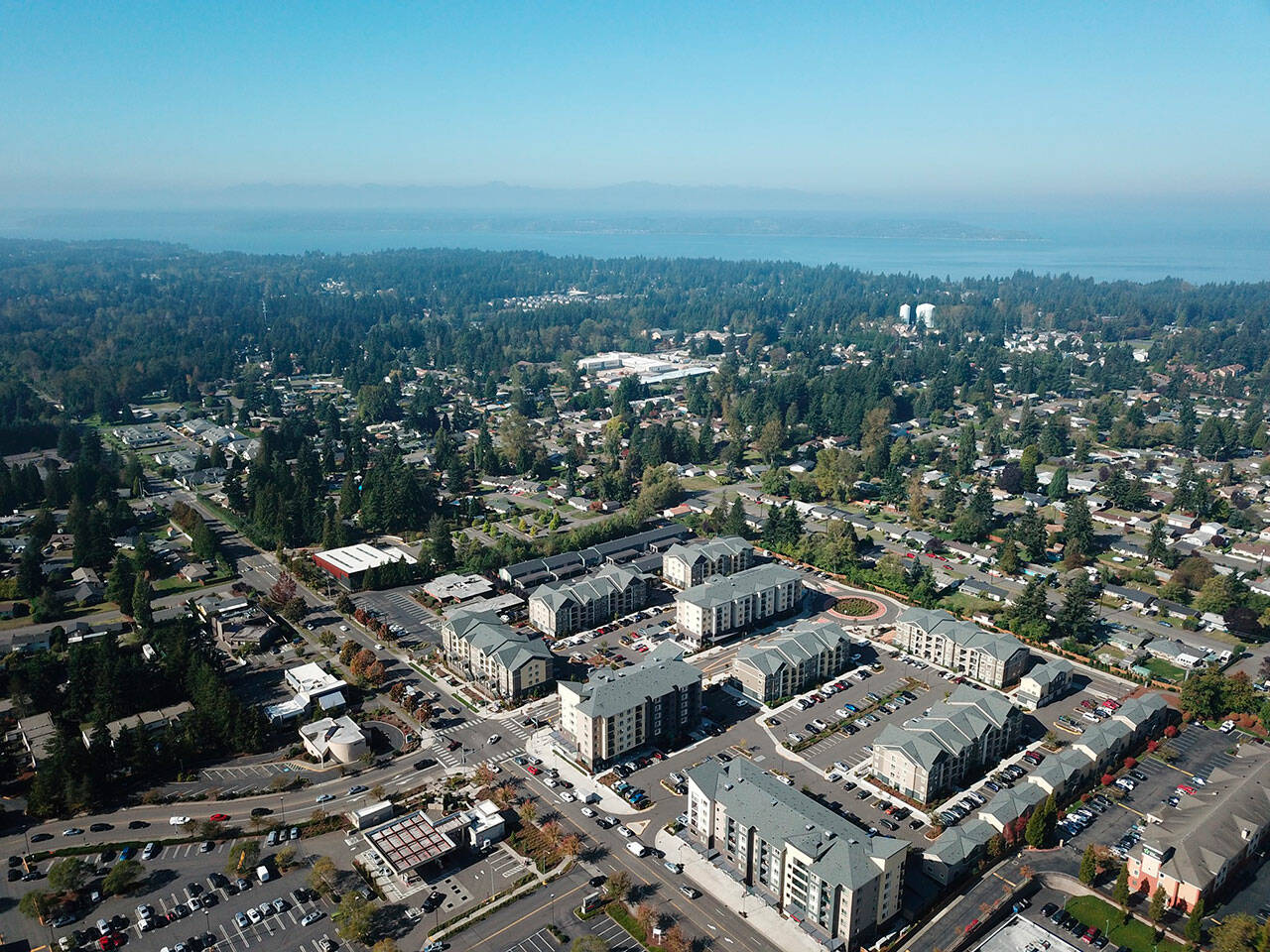By Laurel Demkovich
Washington State Standard
Washington officials are looking at new restrictions on rent increases, along with other policies to ease financial strain for tenants of affordable housing that receives taxpayer support.
A new report from the Washington State Housing Finance Commission and the Washington State Department of Commerce highlights opportunities where the state might be able to help. Washington currently has a hand in financing about 2,600 affordable housing properties with a mix of tax credits, grants and low-interest loans.
In addition to limits on rent increases that go beyond ones now in place, recommendations in the report include exploring incentives for housing providers, reviewing current policies to determine if they are contributing to heavy rent burdens and developing best practices to help ensure rent increases are equitable for all tenants.
“People are rent burdened even in affordable housing because we lack enough housing that people can afford,” Steve Walker, executive director of the Washington State Housing Finance Commission, told the Senate Housing Committee earlier this month.
The report comes as legislators are renewing conversations about pursuing statewide rent stabilization and as local jurisdictions are passing initiatives to protect tenants from unpredictable rent hikes and evictions.
Some lawmakers in this year’s legislative session attempted to pass bills to limit annual rent increases for all tenants. The bills failed, but lead sponsors have said they plan to bring back similar proposals when the Legislature reconvenes in January.
Both the Housing Finance Commission and the Washington State Department of Commerce funnel funding and tax credits to affordable housing projects in Washington.
The commission administers the federal Low-Income Housing Tax Credit program, which supports affordable multifamily housing units through federal tax incentives.
Commerce oversees the state and federal Housing Trust Funds, as well as other affordable housing programs, which provide grants and loans to nonprofit housing developers, local housing authorities and tribes.
Properties that the commission and Commerce help finance are subject to rent limits set by the U.S. Department of Housing and Urban Development.
But even with these guidelines, many people struggle to pay rent, and many are just one rent increase away from housing instability, according to the report.
At the same time, the cost to operate affordable housing has also increased.
“Limited-income households are constantly making tough decisions about how they spend their money,” Walker said. “But residents cannot bear the burden that increased operating costs create through rent increases.”
‘Delicate balance’
A lack of housing and a growing gap between incomes and rents have led to a greater rent burden for many households, according to the report.
Washington faces a housing shortage, needing more than 1 million homes in the next 20 years to meet the demand, the Department of Commerce estimates.
Though the Legislature passed a number of new policies, including unprecedented funding into the state Housing Trust Fund, it could take years for housing supply to catch up to demand.
At the same time, income gains trail rising housing costs.
According to data from the Center on Budget and Policy Priorities, a progressive research institute, median rents have increased nationwide by 18.8% since 2001, but median renter household income in the U.S. has only gone up by 4.3% over that time.
In an analysis by the Commission from May 2018 to October 2023, leading concerns for residents of state-financed housing were about rent as well as property management and quality of life.
Complaints regarding rent and eviction decreased during 2020 and 2021, likely in part because of the state and federal eviction moratorium in place.
Owners of affordable housing cite issues with inflation, renter behavior, security costs and decreased rent collections as reasons their finances have tightened, according to the report.
“It’s a delicate balance,” Corina Grigoras, assistant director of the housing division at the Department of Commerce, told the Senate Housing committee. A large rent increase can destabilize renter households, but no increase can destabilize housing providers, she said.
Seeking solutions
Walker said one of the first things the state should do is “look in the mirror” and make sure their own policies aren’t contributing to rising costs for tenants or landlords.
Other options include incentives for housing providers that could influence how they determine rent increases.
The report also suggests there could be rent cap policies that provide more predictability and stability than the federal limits now in place.
But with these solutions, there’s some conflict, Walker said.
State agencies only have so much power to regulate rents because many affordable housing projects have federal requirements. Because of those rules and existing contracts, any changes can likely only apply to future projects, Walker said.
A final report on the topic is due next December. The report released this month was an interim version. As the agencies continue work to finalize recommendations, Walker said the state will need to consult residents and property owners to help meet both of their needs.
“Failure to protect the long-term success of properties will ultimately fail the communities and people we’re serving,” Walker said.
Washington State Standard is part of States Newsroom, a nonprofit news network supported by grants and a coalition of donors as a 501c(3) public charity. Washington State Standard maintains editorial independence. Contact Editor Bill Lucia for questions: info@washingtonstatestandard.com. Follow Washington State Standard on Facebook and Twitter.


